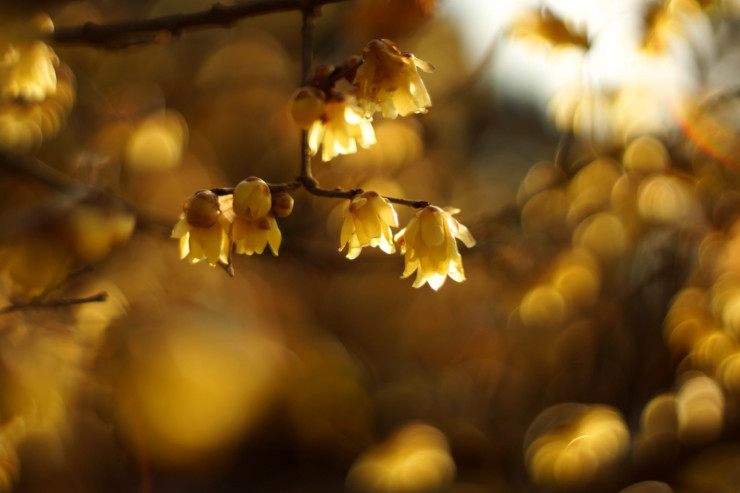When Salman Rushdie said that “a poet’s work is to name the unnameable” (and others have said a similar thing), what he was pointing to was likely a fact of language: that at times there is no word at the ready for a given circumstance or thought or feeling or thing. When someone successfully assembles the right words in the right order to convey that unnameable sense, we like to call that poetry.
But some languages do have the words for such unnameable things. Not for all the things that seem otherwise to lack them, but there’s a beautiful moment that can unfold when one discovers such a word to describe something we’d previously been unable to, or perhaps we’d been able but it took a whole sentence to get the job done.
Take the ancient tongue of the Anishinaabe, which names the unnameable silence of a mushroom pushing forth from the earth: Puhpowee.
Robin Wall Kimmerer writes in Braiding Sweetgrass of discovering that word:
My first taste of the missing language was the word Puhpowee on my tongue. I stumbled upon it in a book by the Anishinaabe ethnobotanist Keewaydinoquay, in a treatise on the traditional uses of fungi by our people. Puhpowee, she explained, translates as “the force which causes mushrooms to push up from the earth overnight.” As a biologist, I was stunned that such a word existed. In all its technical vocabulary, Western science has no such term, no words to hold this mystery. You’d think biologists, of all people, would have words for life. But in scientific language our terminology is used to define the boundaries of our knowing. What lies beyond our grasp remains unnamed.
In the three syllables of this new word I could see an entire process of close observation in the damp morning woods, the formulation of a theory for which English has no equivalent. The makers of this word understood a world of being, full of unseen energies that animate everything.
I speak two languages reasonably well. Neither of them, to my knowledge, have a word or even an expression for this courageous act of the mushroom. In puhpowee, this act is ascribed a certain value, a worth in having been given its own word. Kimmerer goes on to reflect on her own act of listening in the woods and of hearing “the shhh of wind in needles, water trickling over rock, nuthatch tapping, chipmunks digging, beechnut falling, mosquito in my ear, and something more — something that is not for me, for which we have no language, the wordless being of others in which we are never alone. After the drumbeat of my mother’s heart, this was my first language.”
She tells the story of learning to speak her ancestral tongue and the discovery that only nine speakers of the language remained.
There was a great deal of excitement about the class because, for the first time, every single fluent speaker in our tribe would be there as a teacher. When the speakers were called forward to the circle of folding chairs, they moved slowly — with canes, walkers, and wheelchairs, only a few entirely under their own power. I counted them as they filled the chairs. Nine. Nine fluent speakers. In the whole world. Our language, millennia in the making, sits in those nine chairs. The words that praised creation, told the old stories, lulled my ancestors to sleep, rests today in the tongues of nine very mortal men and women.
In large part because of the tragedy that was assimilation, forced upon this country’s indigenous people, this language that finds itself naturally in the mouths of these lone nine people is in danger of disappearing. One of the aged speakers told the group that had gathered to learn in order to save it, “We’re the end of the road. We are all that is left. If you young people do not learn, the language will die. The missionaries and the U.S. government will have their victory at last.” Another added that it was more than the words at risk. “The language is the heart of our culture; it holds our thoughts, our way of seeing the world. It’s too beautiful for English to explain.”
The poet Adrienne Rich wrote in “Transcendental Etude” of this wrenching away of language:
No one who survives to speak
new language, has avoided this:
the cutting-away of an old force that held her
rooted to an old ground
the pitch of utter loneliness
where she herself and all creation
seem equally dispersed, weightless, her being a cry
to which no echo comes or can ever come.
Once I spent the better part of a year hand-writing page after page of my life as I could best recall it, starting hundreds of sentences with the words “I remember.” At times I came across certain happenings, certain truths, that, even with two languages at my disposal, escaped any meaningful expression. There were certain ways of being that were left in want of what the mushroom had as it pushed its way through the earth to see the sky. The mushroom, in puhpowee received a benediction of sorts at its birth. The mushroom experienced the wonder of having language.
Language tells a thing that it is.
Photo by Takashi .M, Creative Commons license via Flickr. Post by LW Willingham.
We’re reading Braiding Sweetgrass as a community and invite you to join us as we explore the riches of this book, tugging against the strands we’re braiding between us, together. If you don’t yet have the book, enjoy this reprint of the first chapter.
Buy Braiding Sweetgrass Now
- Earth Song Poem Featured on The Slowdown!—Birds in Home Depot - February 7, 2023
- The Rapping in the Attic—Happy Holidays Fun Video! - December 21, 2022
- Video: Earth Song: A Nature Poems Experience—Enchanting! - December 6, 2022


L.L. Barkat says
It is fascinating to me how, yes, language seems to tell a thing that “it is.” There are so many other ways to communicate—through signs, art, song, ritual. These too, perhaps, tell a thing that “it is.”
Yet. There is something about language that does feel like a benediction, or an affirmation, or maybe even an “aha!” or an “ohhhhh.” Someone saw something, felt something, and deemed it word-needful.
I wonder if all cultures give words preeminence the way “American culture” (hmmm) does. Or if, for some peoples, “a thing” is equally or greater valued or celebrated or perceived or understood by its existence in… sign, art, song, or ritual.
Jody Collins says
Tweetspeak always finds the most wonderful books. Thank you for this glimpse LW.
Laura Brown says
And a being that they are.
There’s a sweet little illustrated book about words like this: “Lost in Translation: An Illustrated Compendium of Untranslatable Words from Around the World” by Ella Frances Sanders. One is the Italian verb commuovere, “to be moved in a heartwarming way, usually relating to a story that moved you to tears.”
Puhpowee is fascinating partly because it names not merely the phenomenon but the force that pushes the mushroom up. What noticing, what curiosity, what valuing. What is it that helps or convinces a soft mushroom to make its way through and displace something that might seem stronger, more solid, more dense than it is? And why does it tend to do this surface-breaking work at night?
When people have such a word in their language (I hope I’m not damaging it here), then it also lends itself to metaphor. Instead of telling someone, “You’ve got grit,” we might say, “You’ve got puhpowee.”
Thank you for highlighting this part of the book. I hope some of the people who attended that event are learning what they can from those remaining elders.